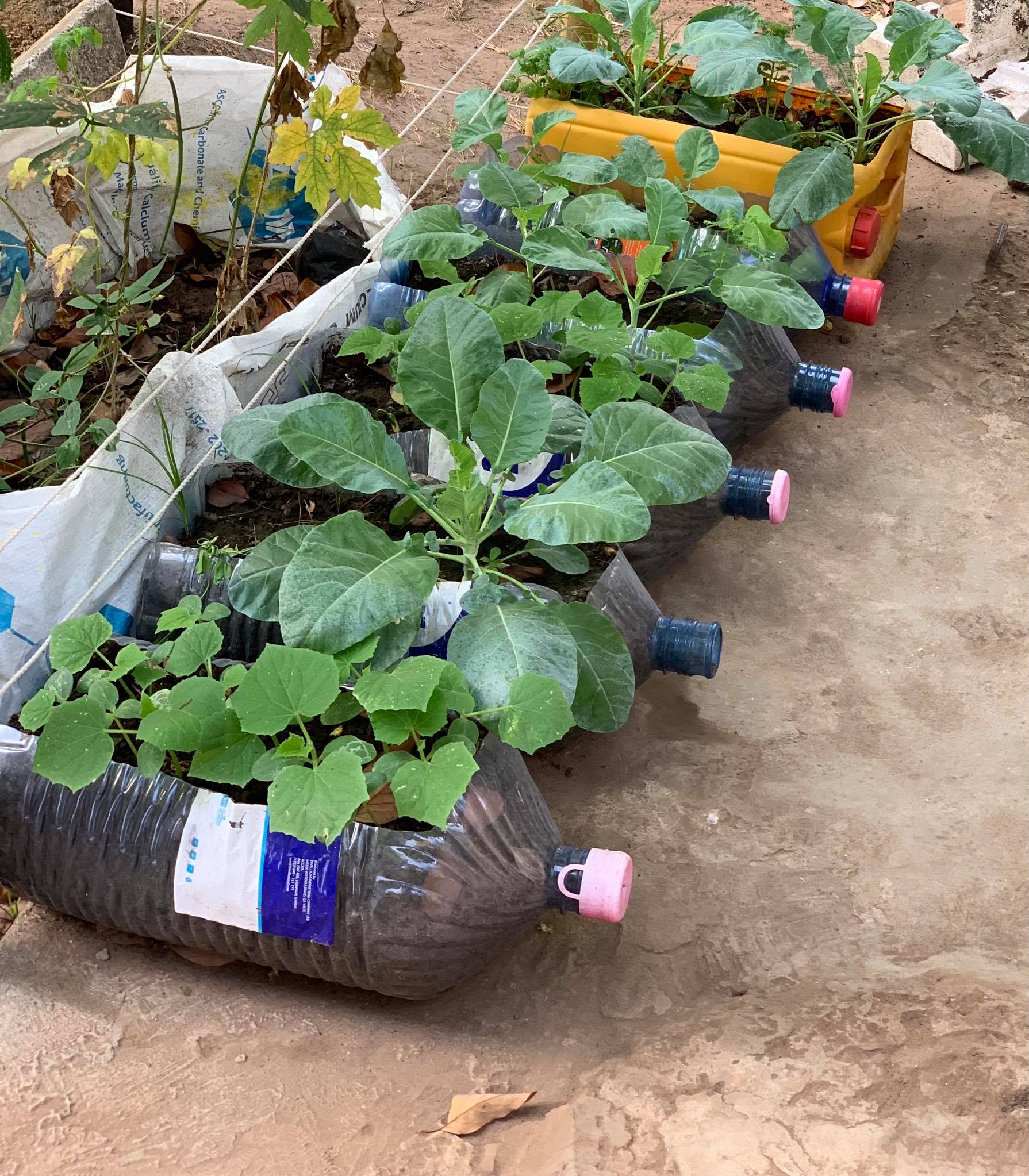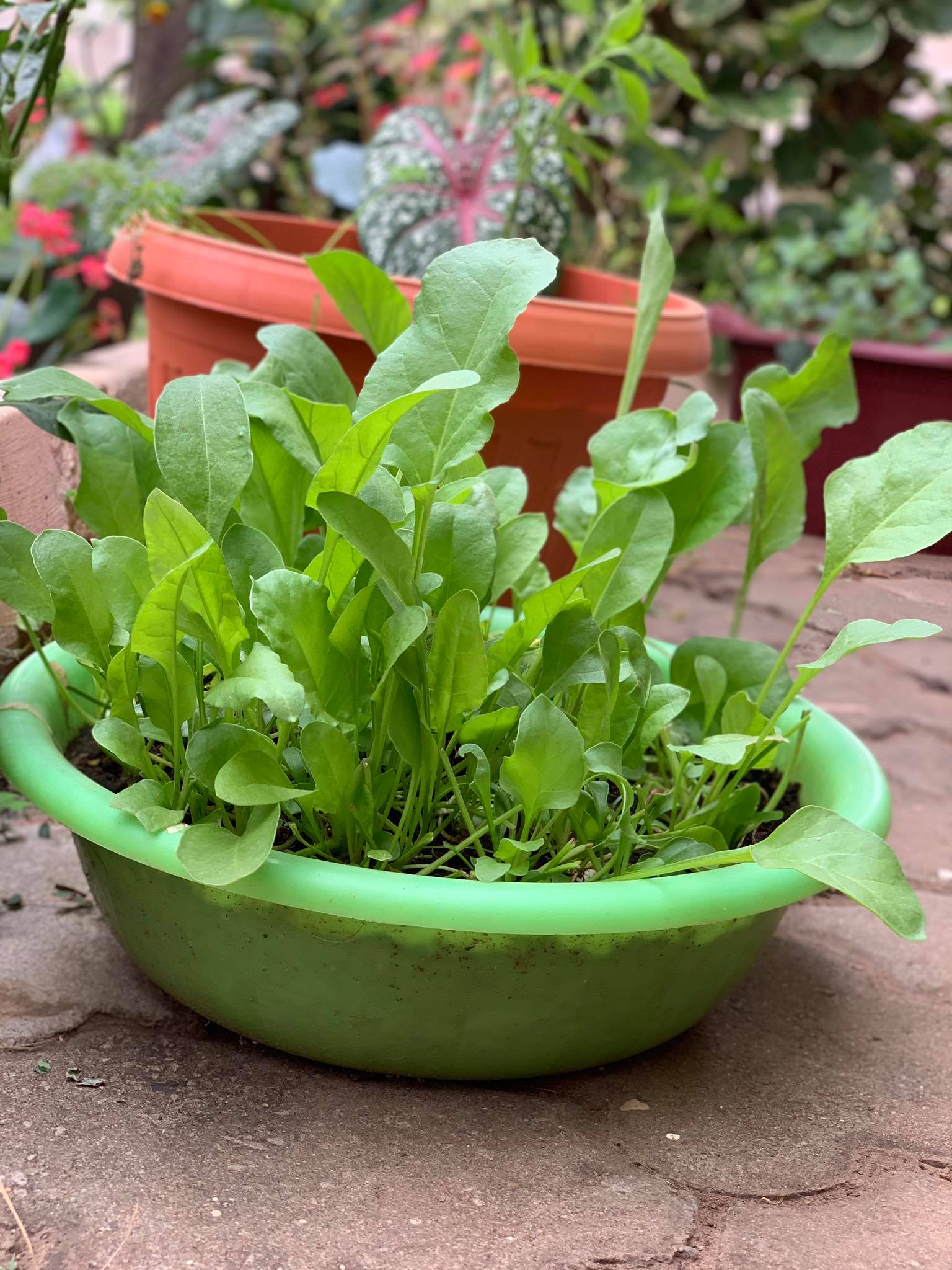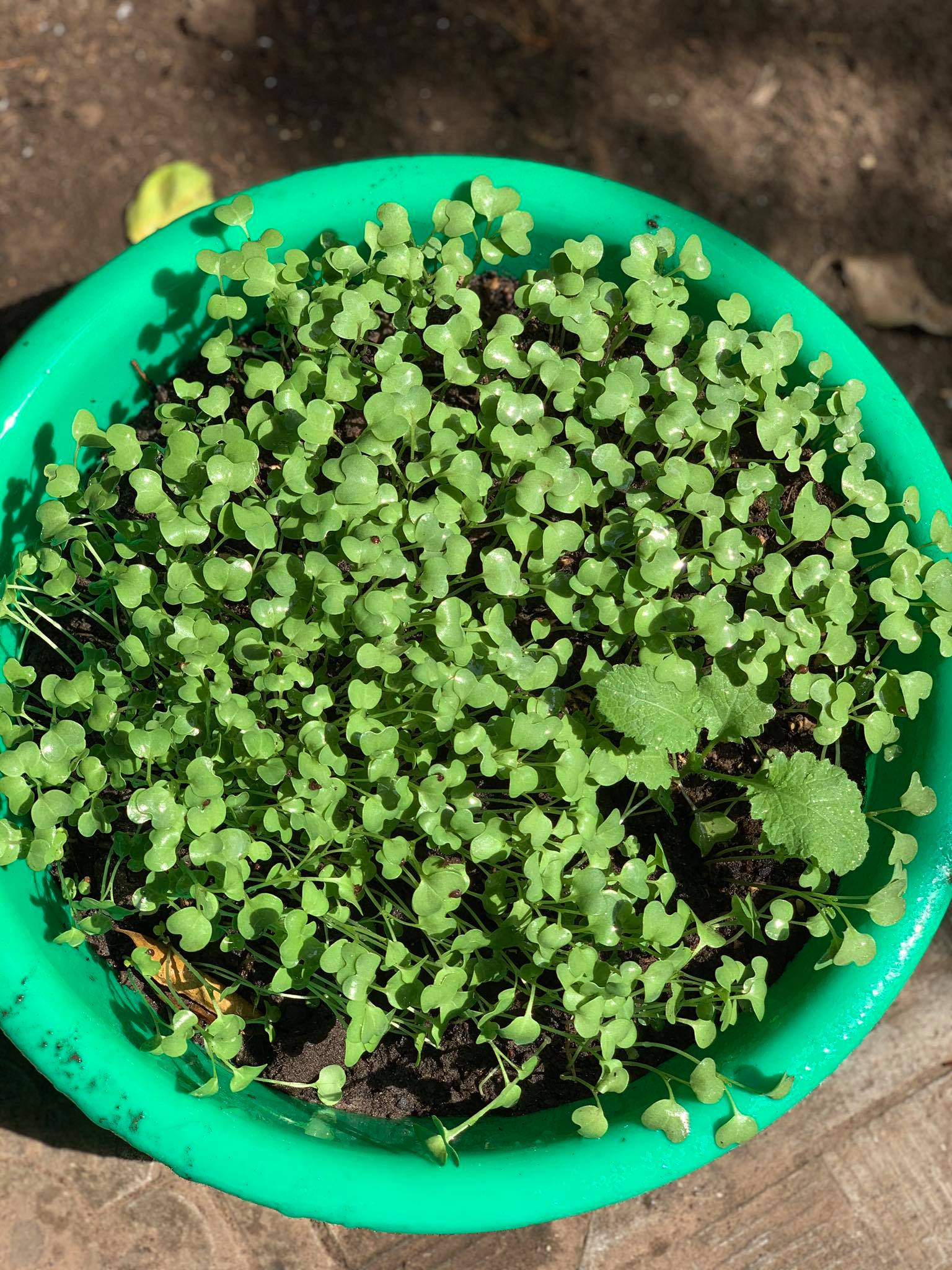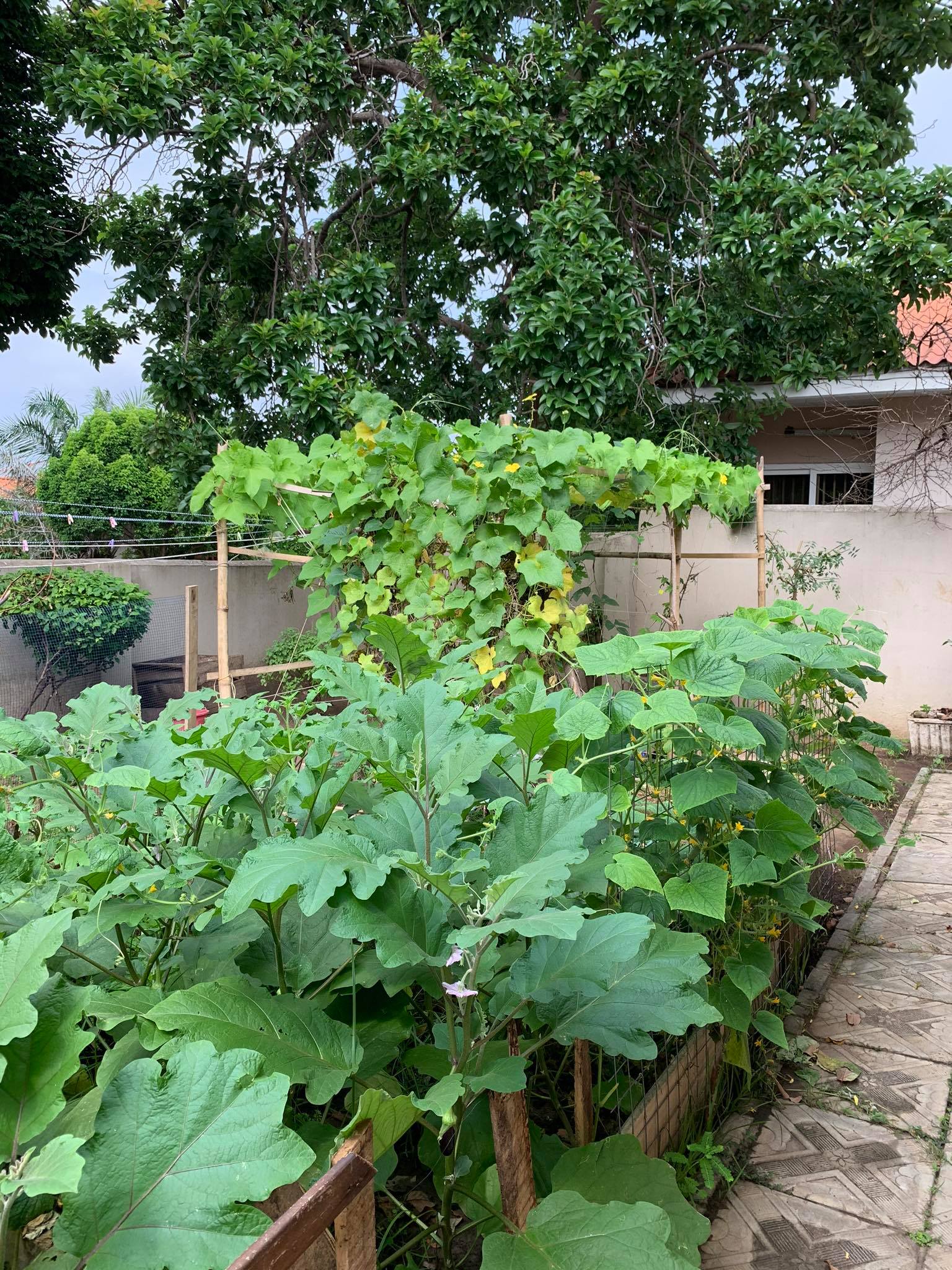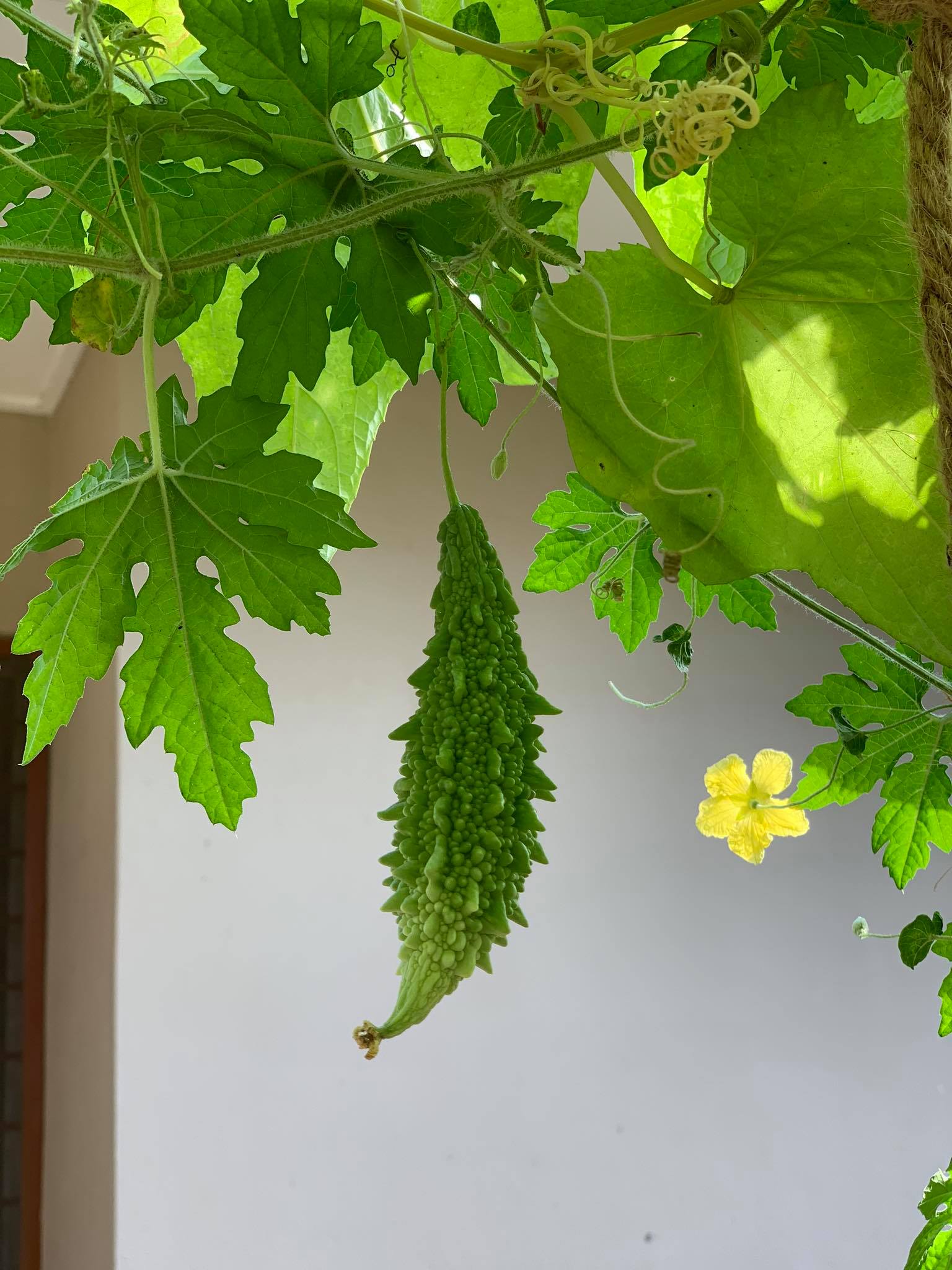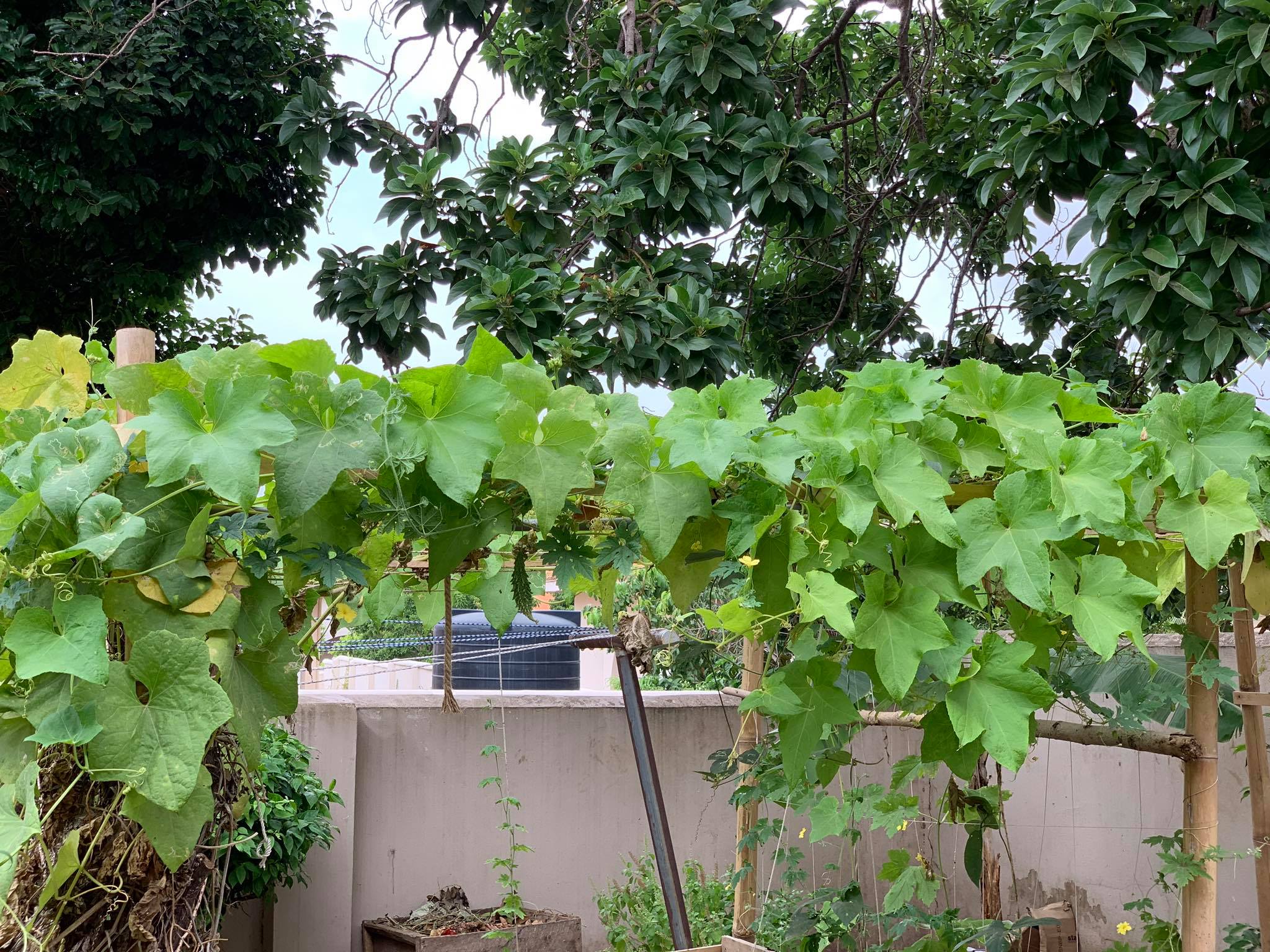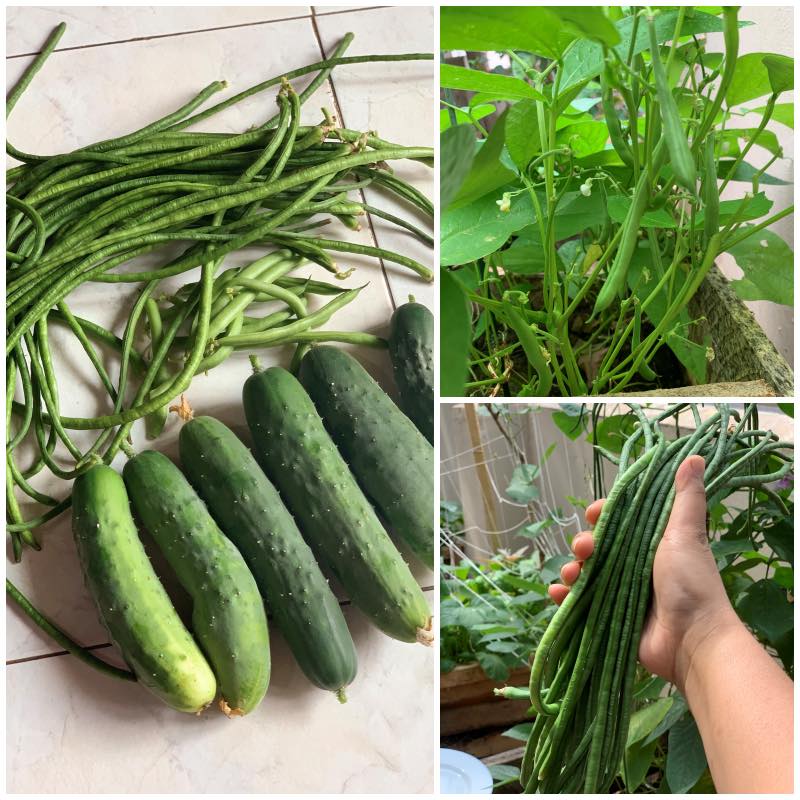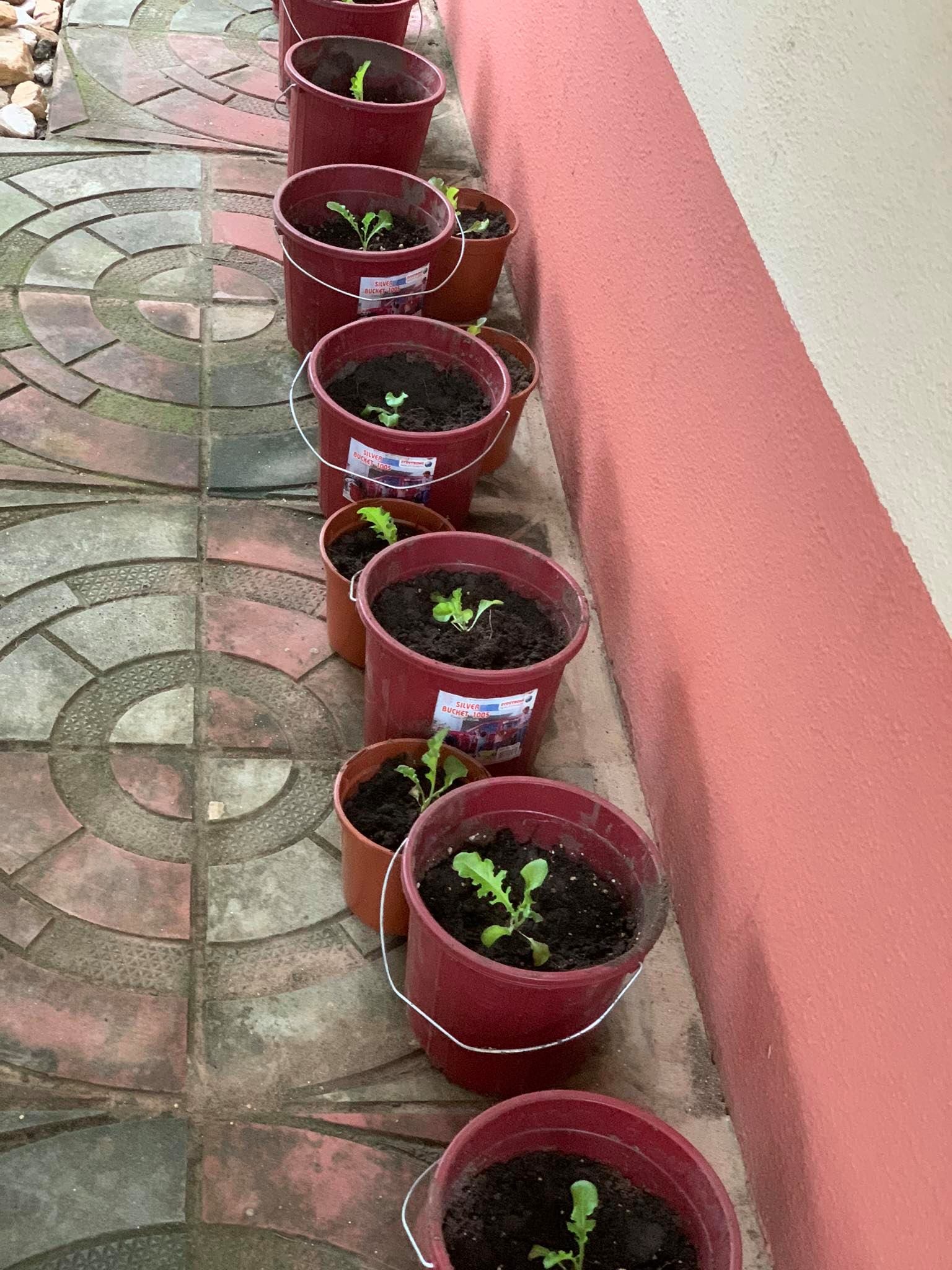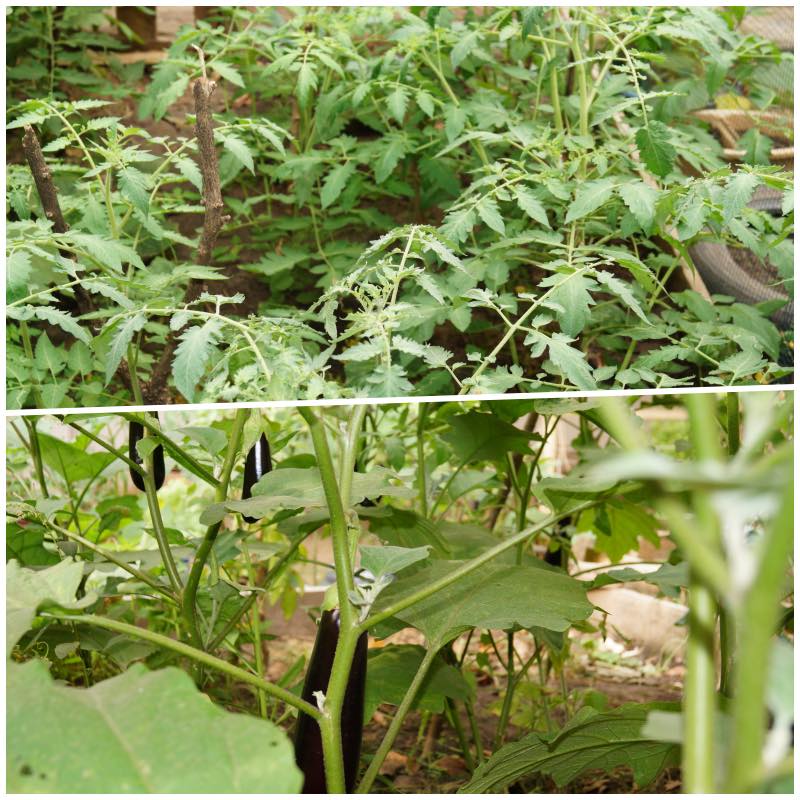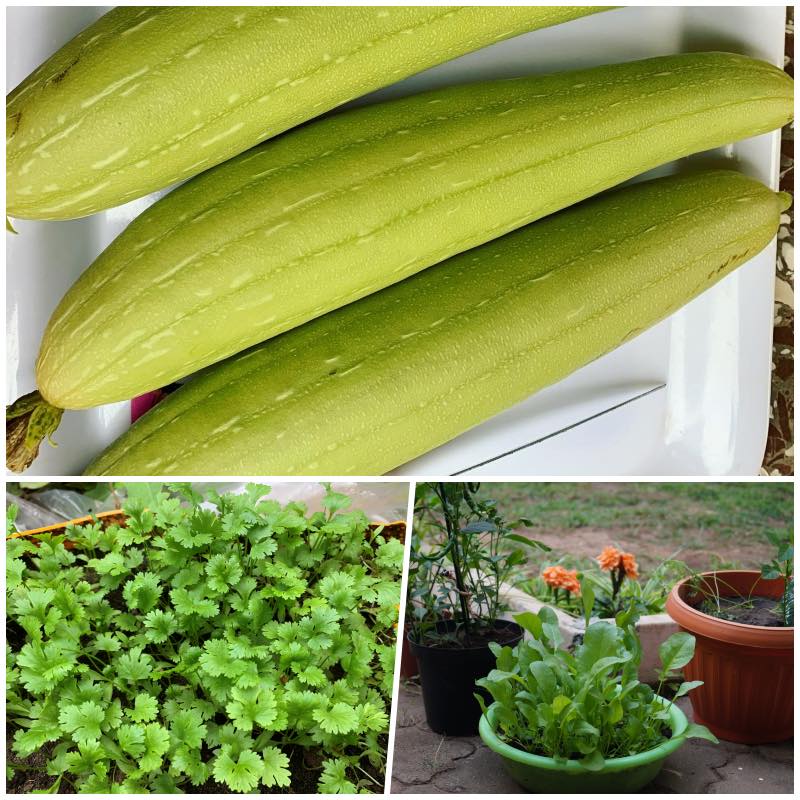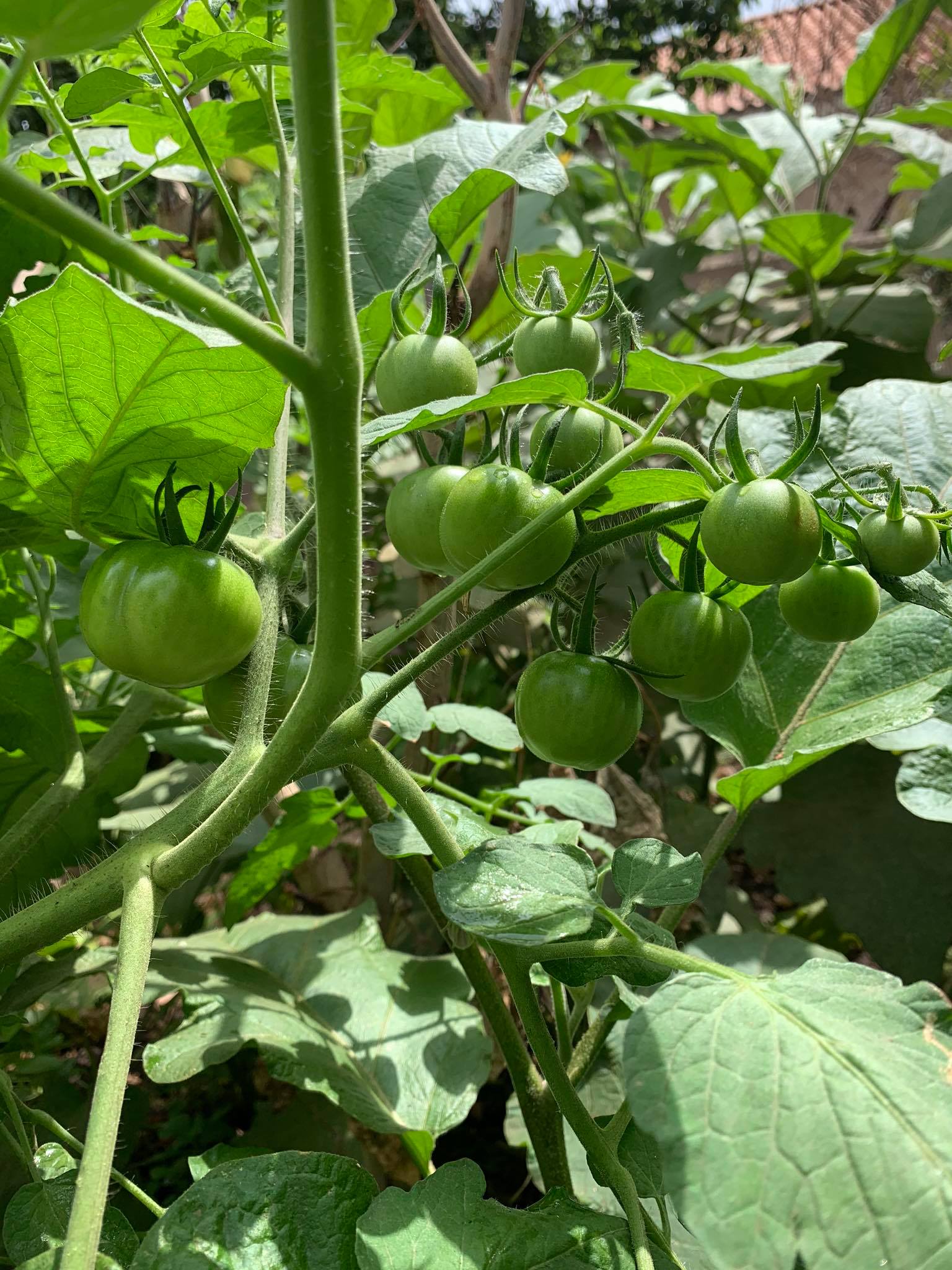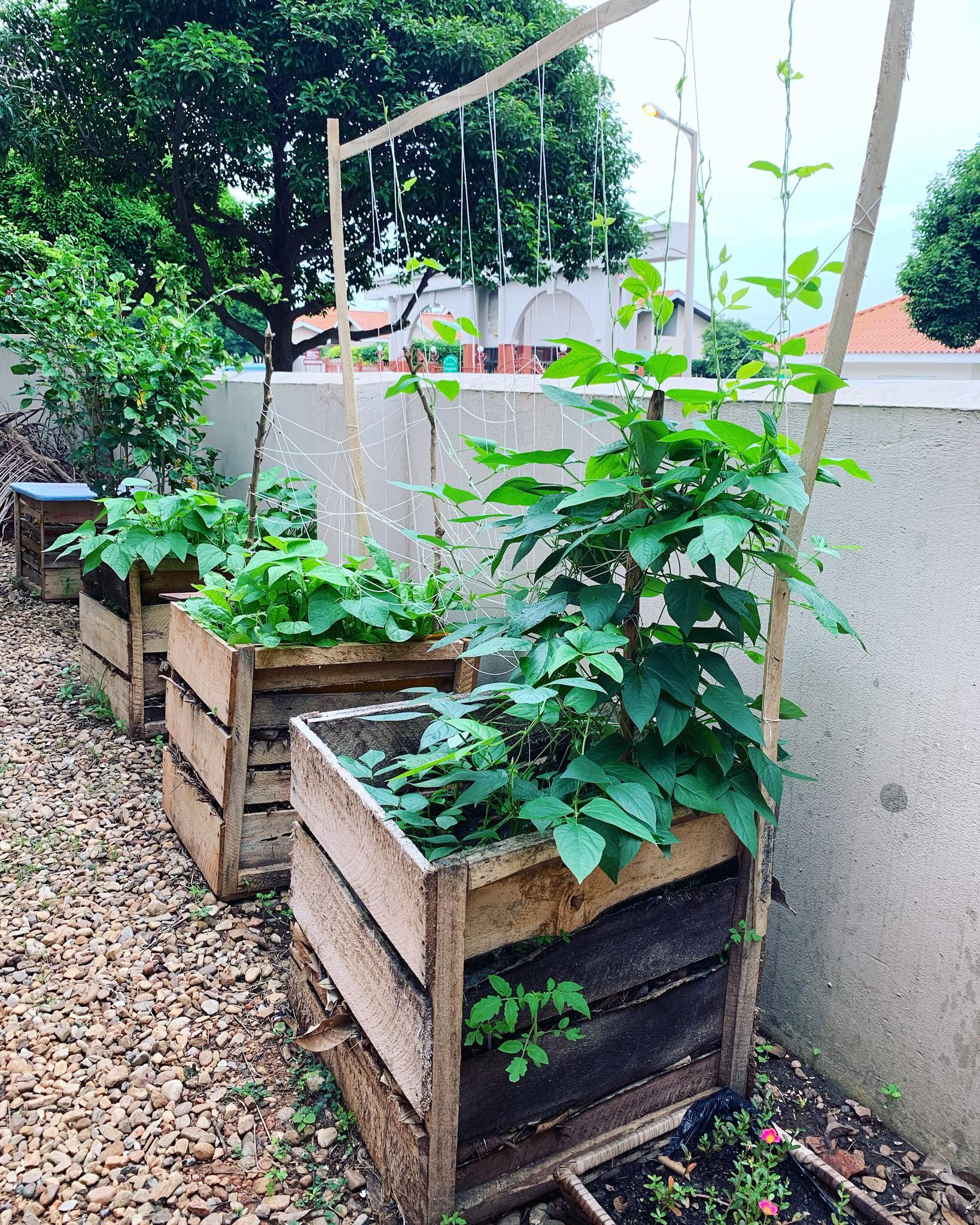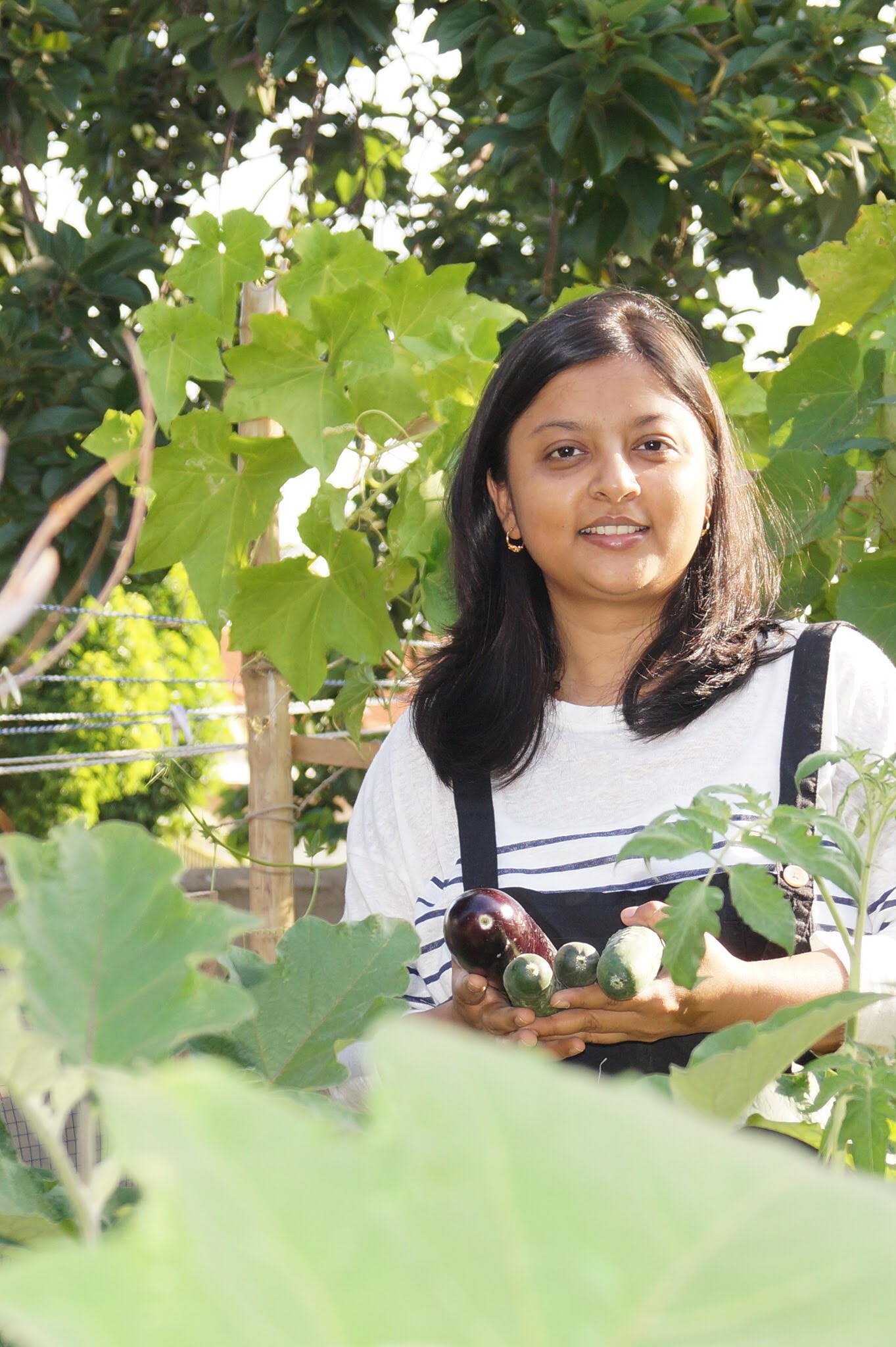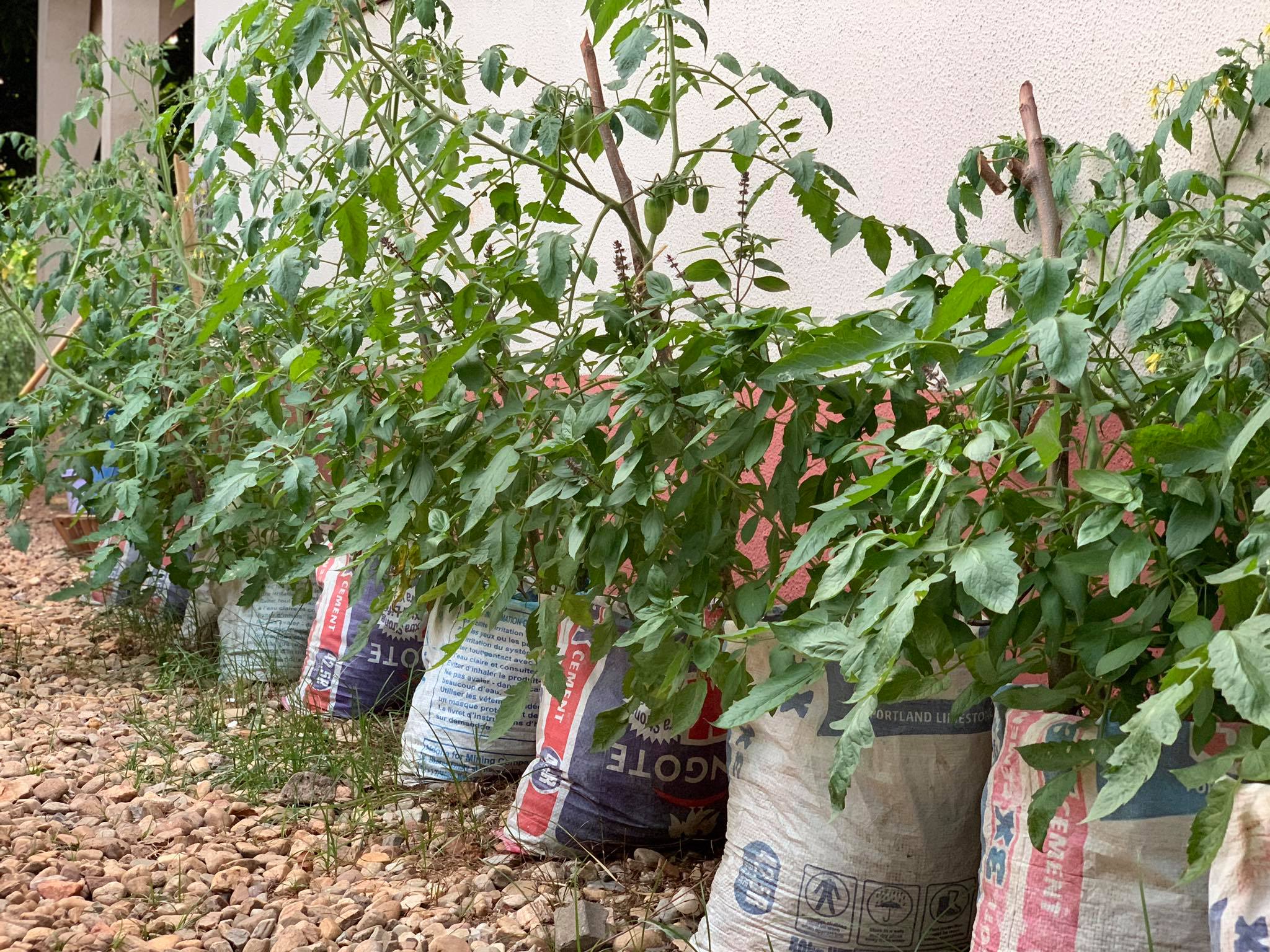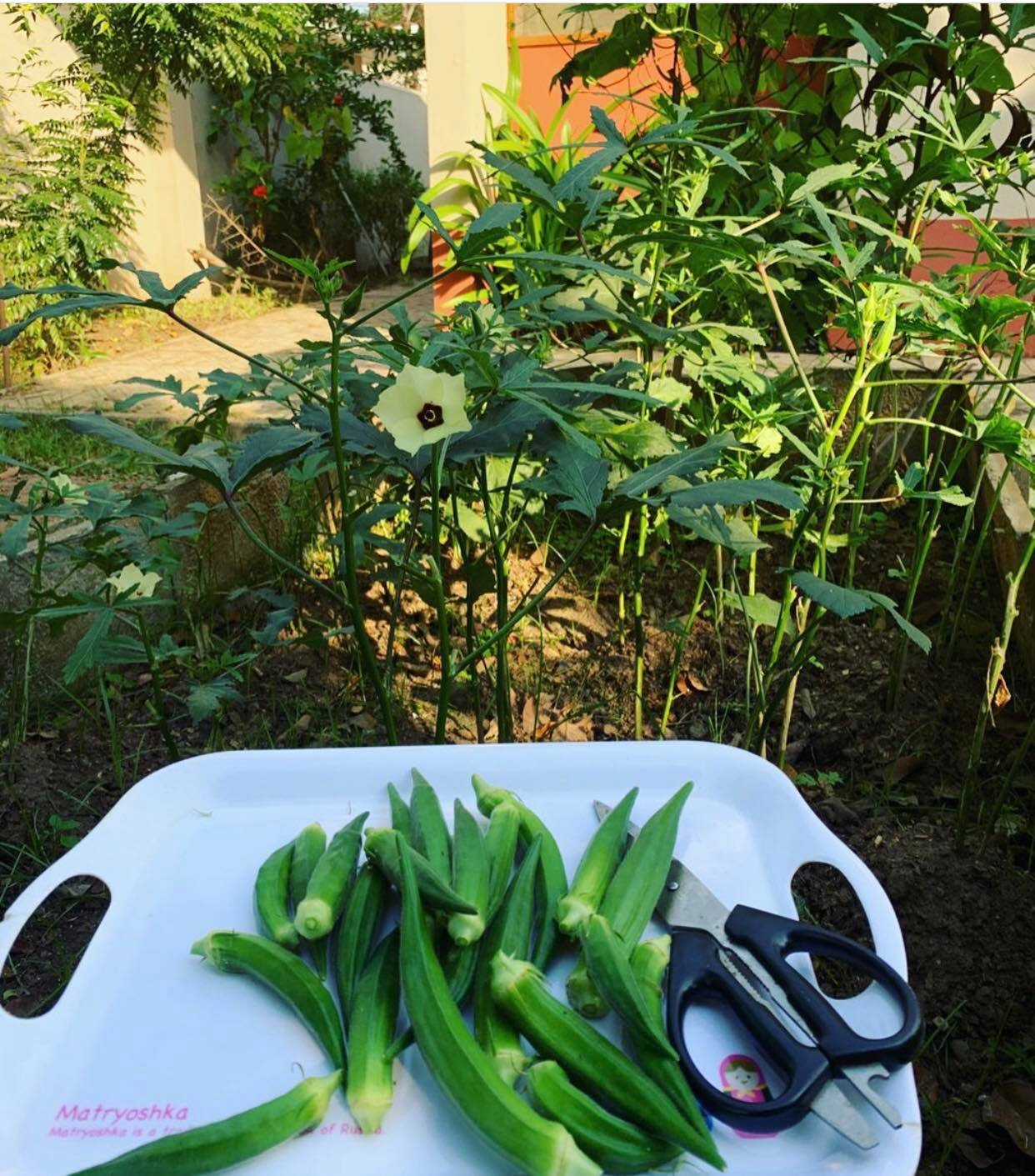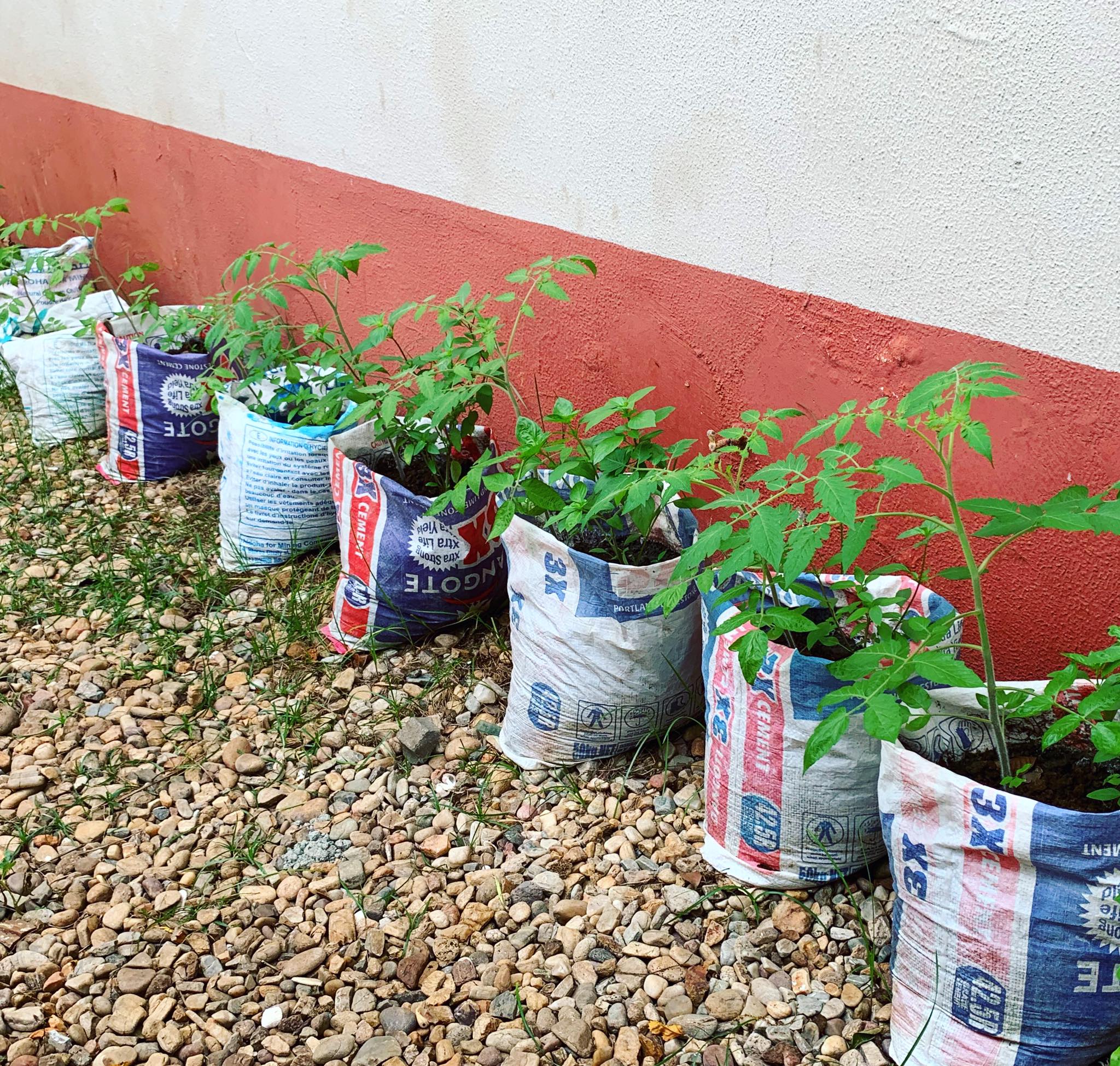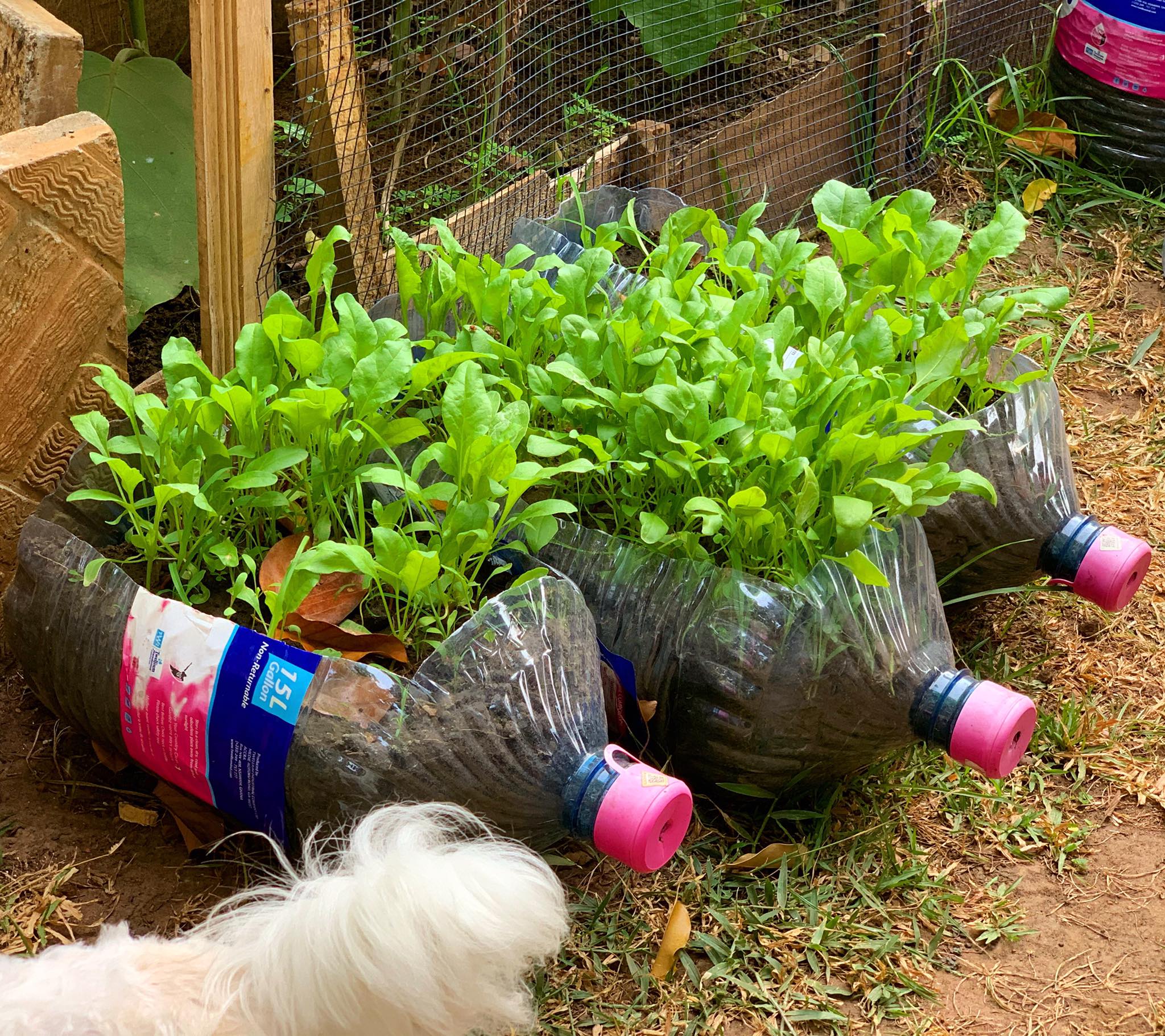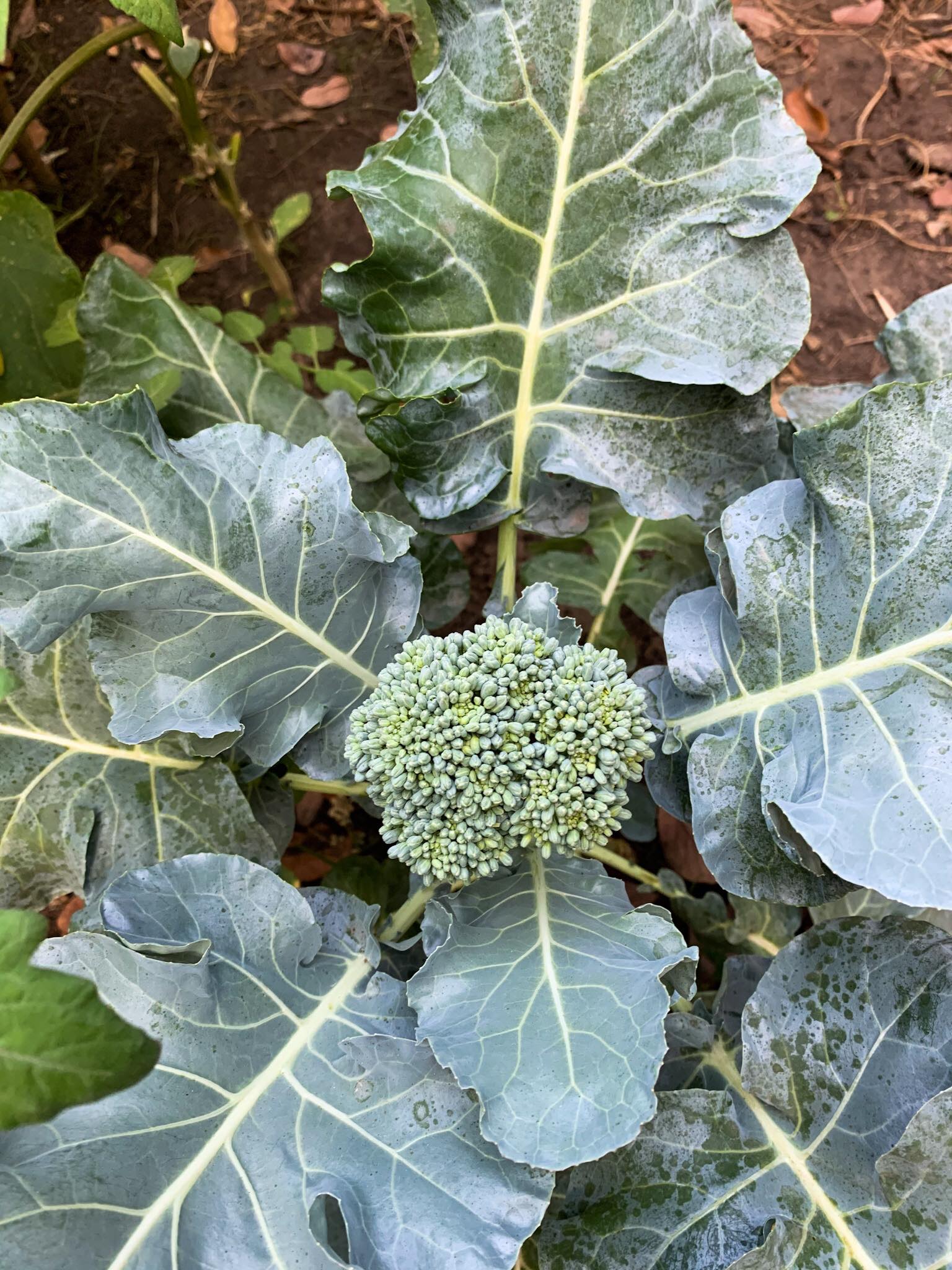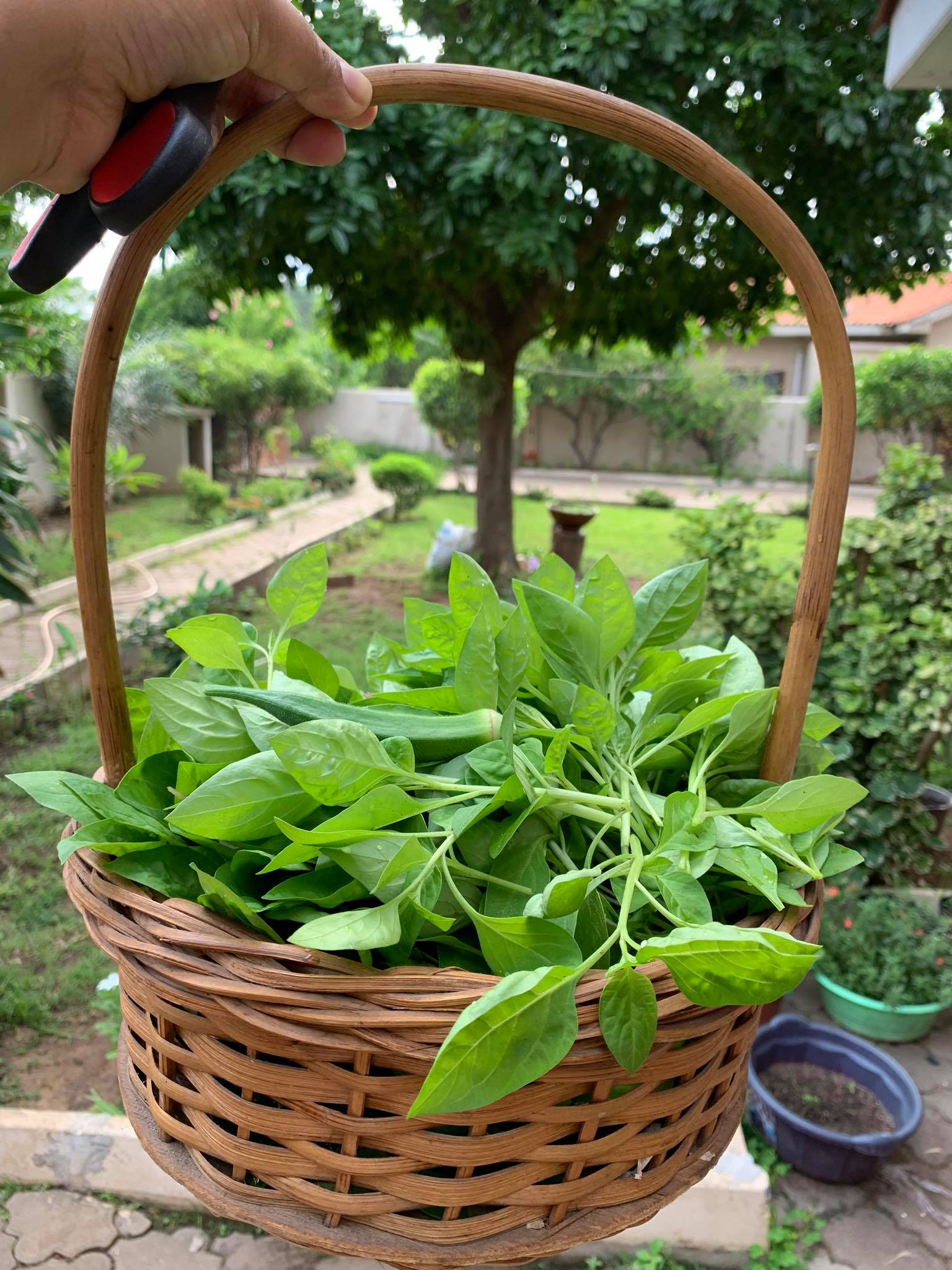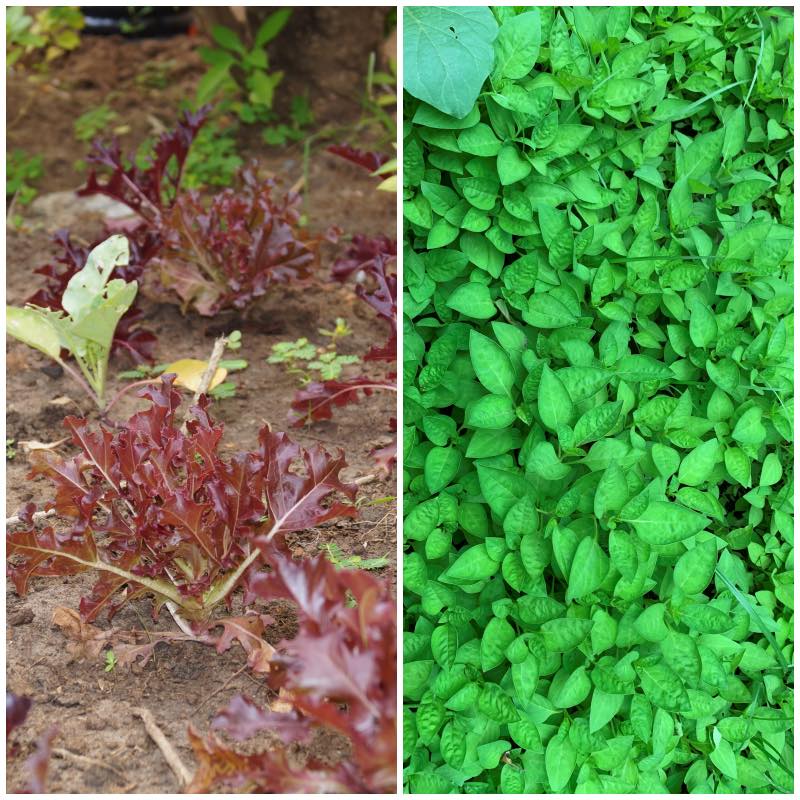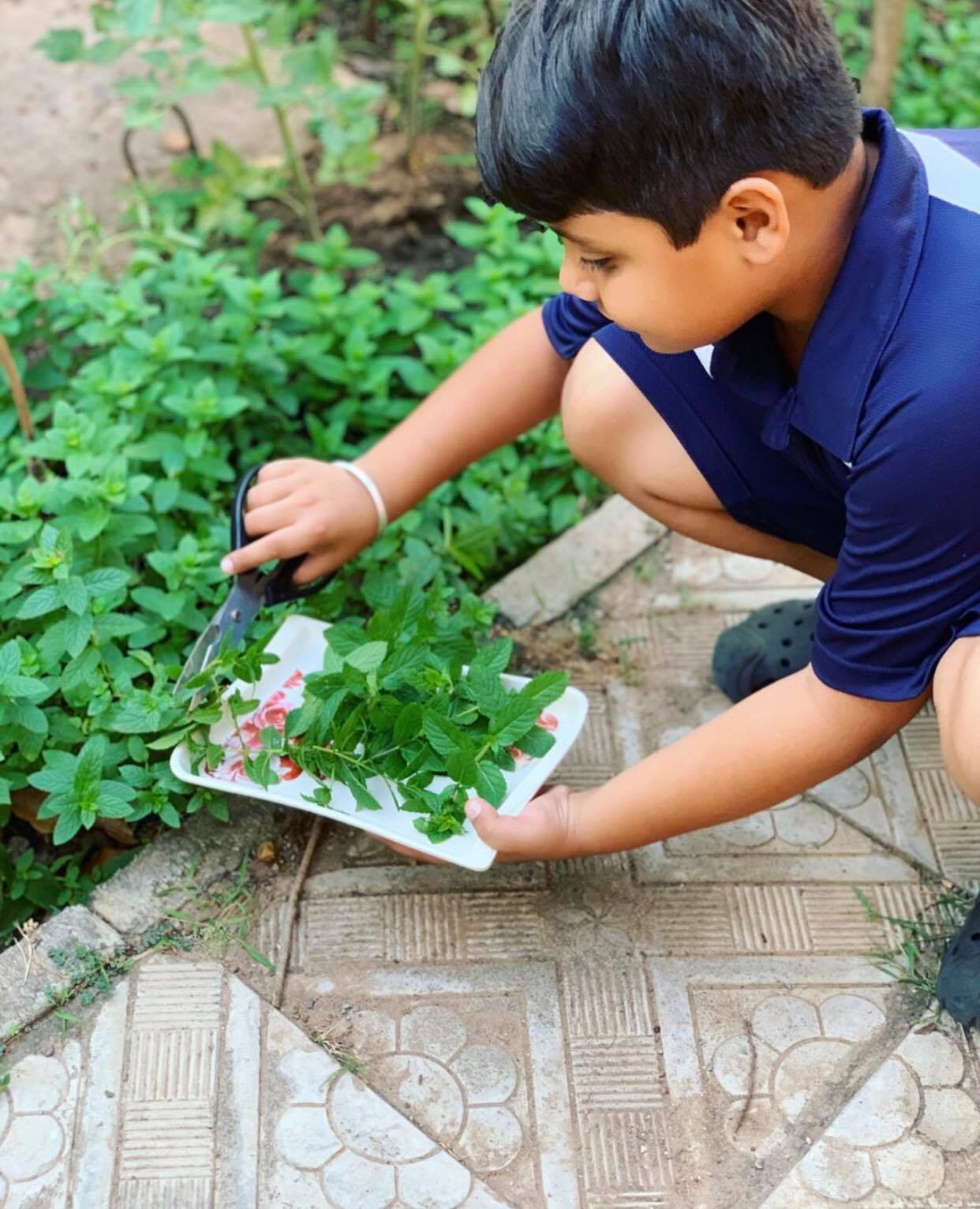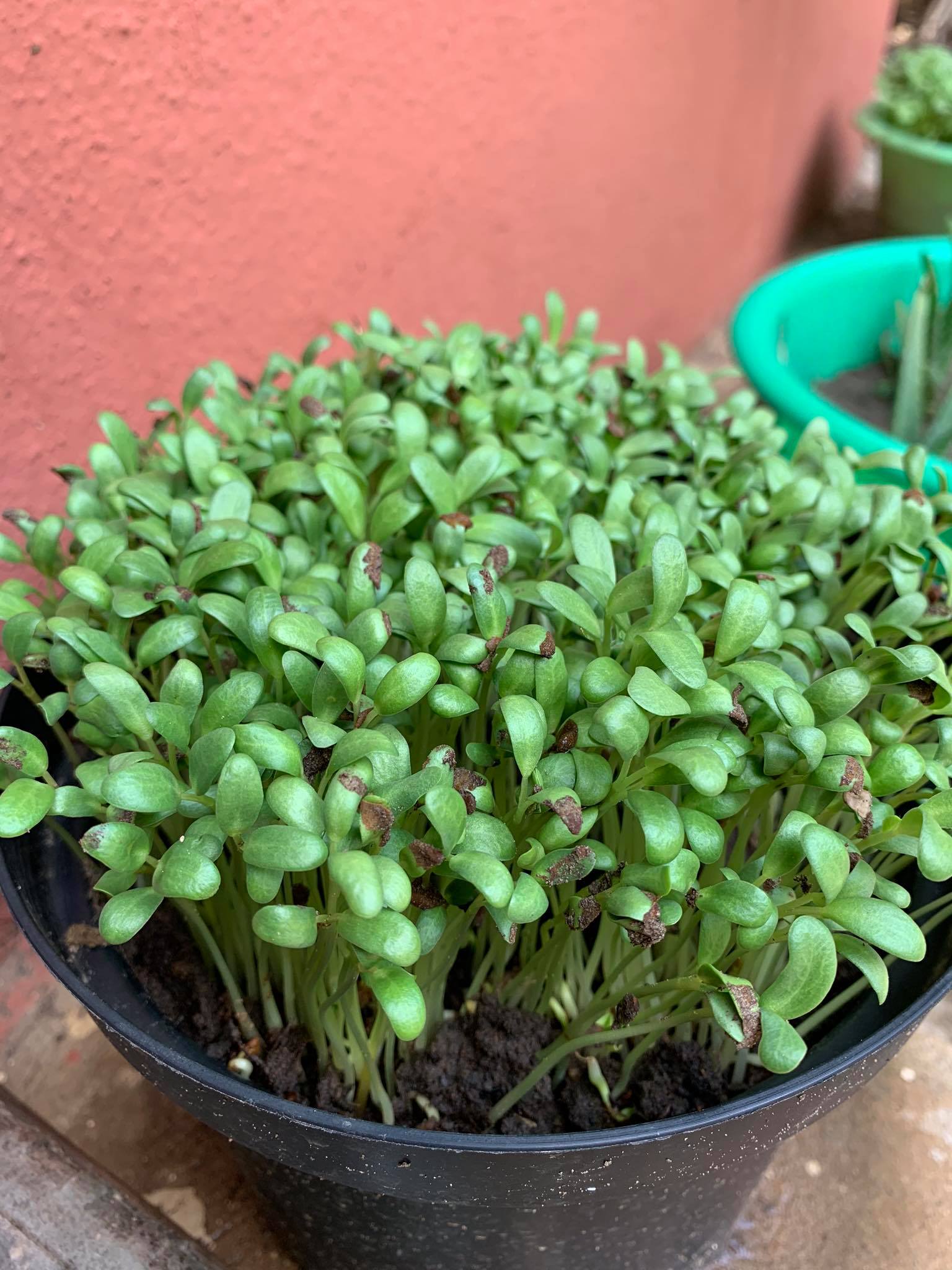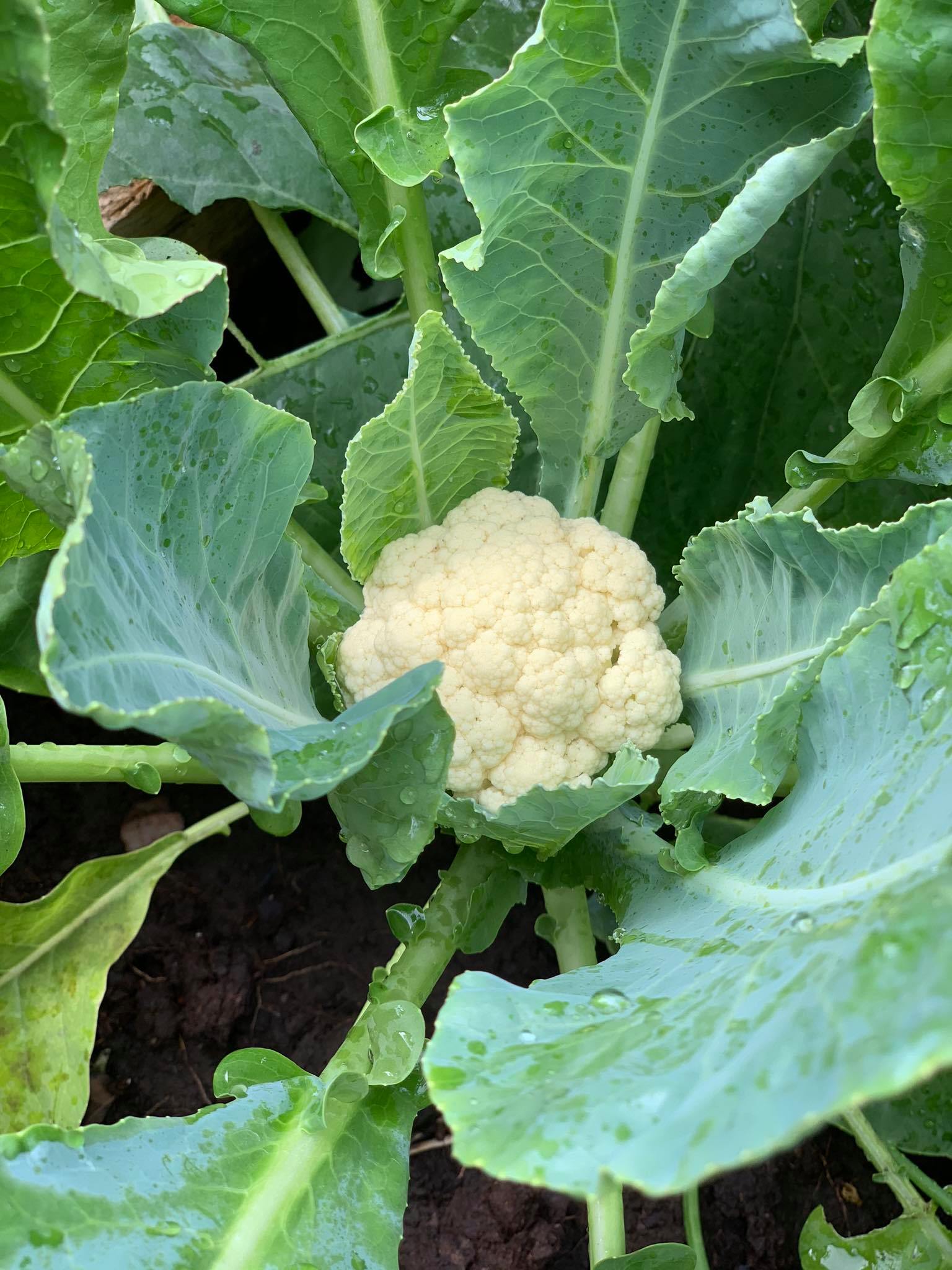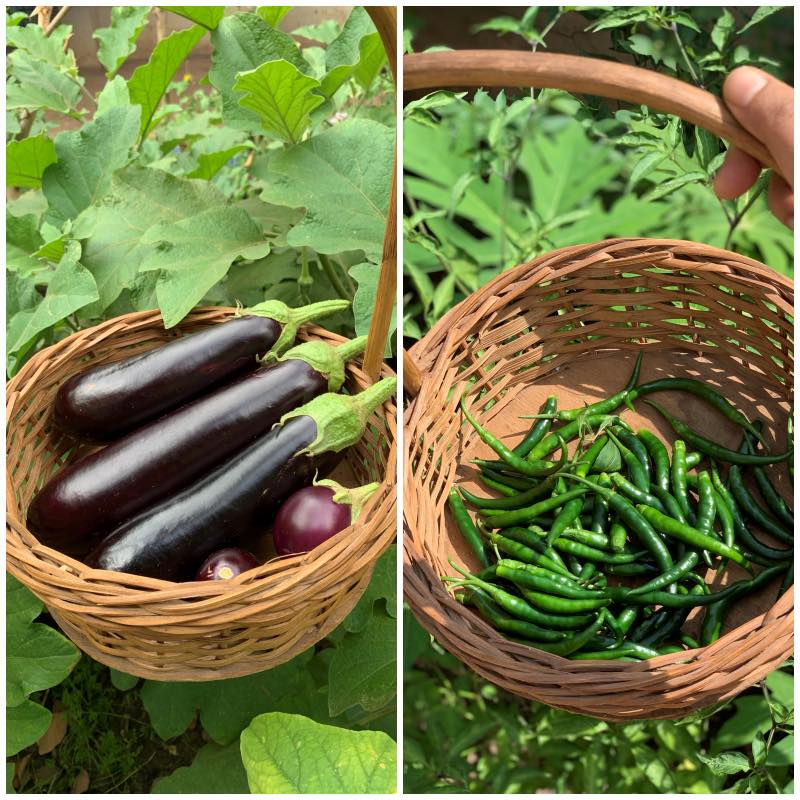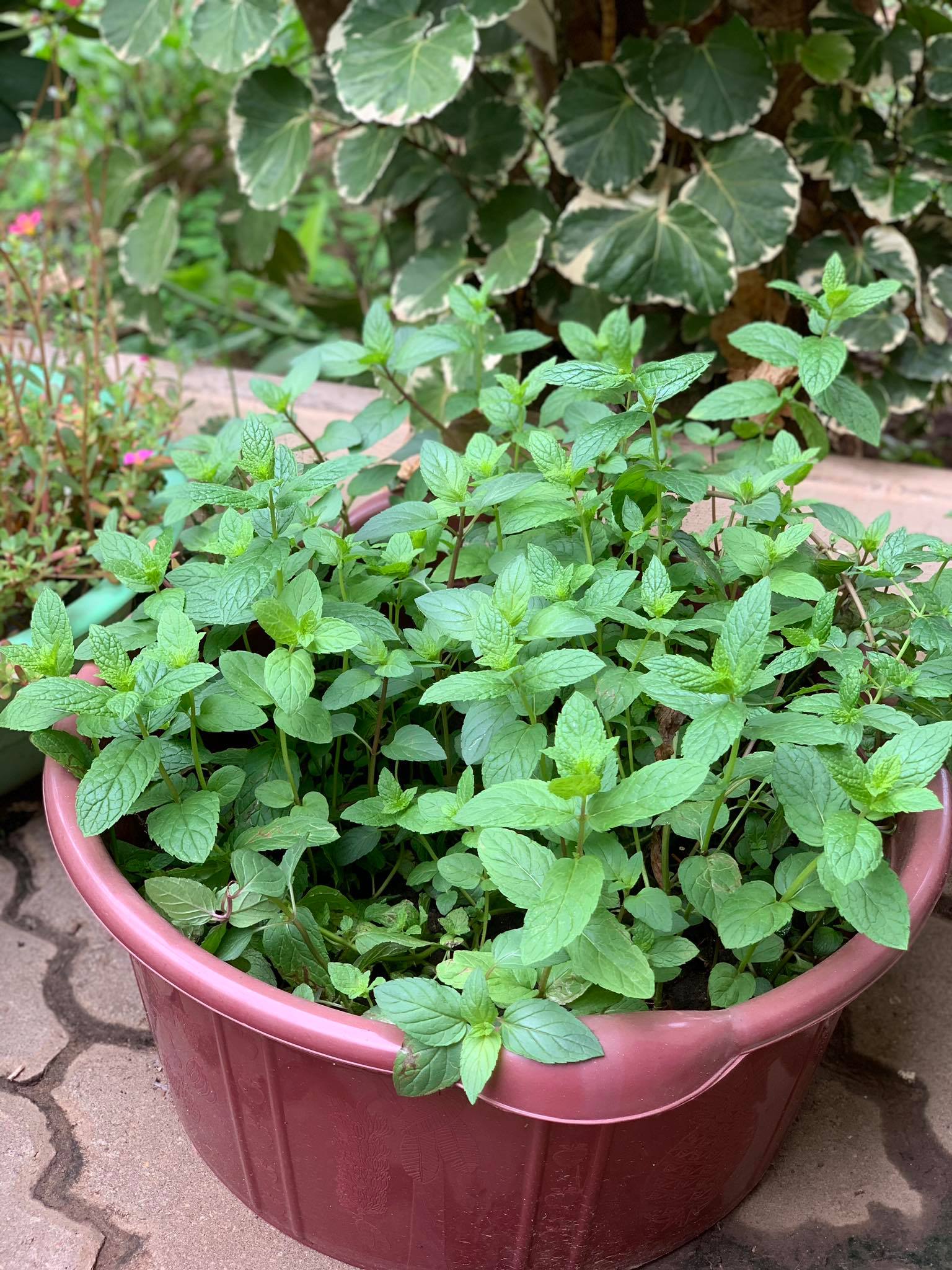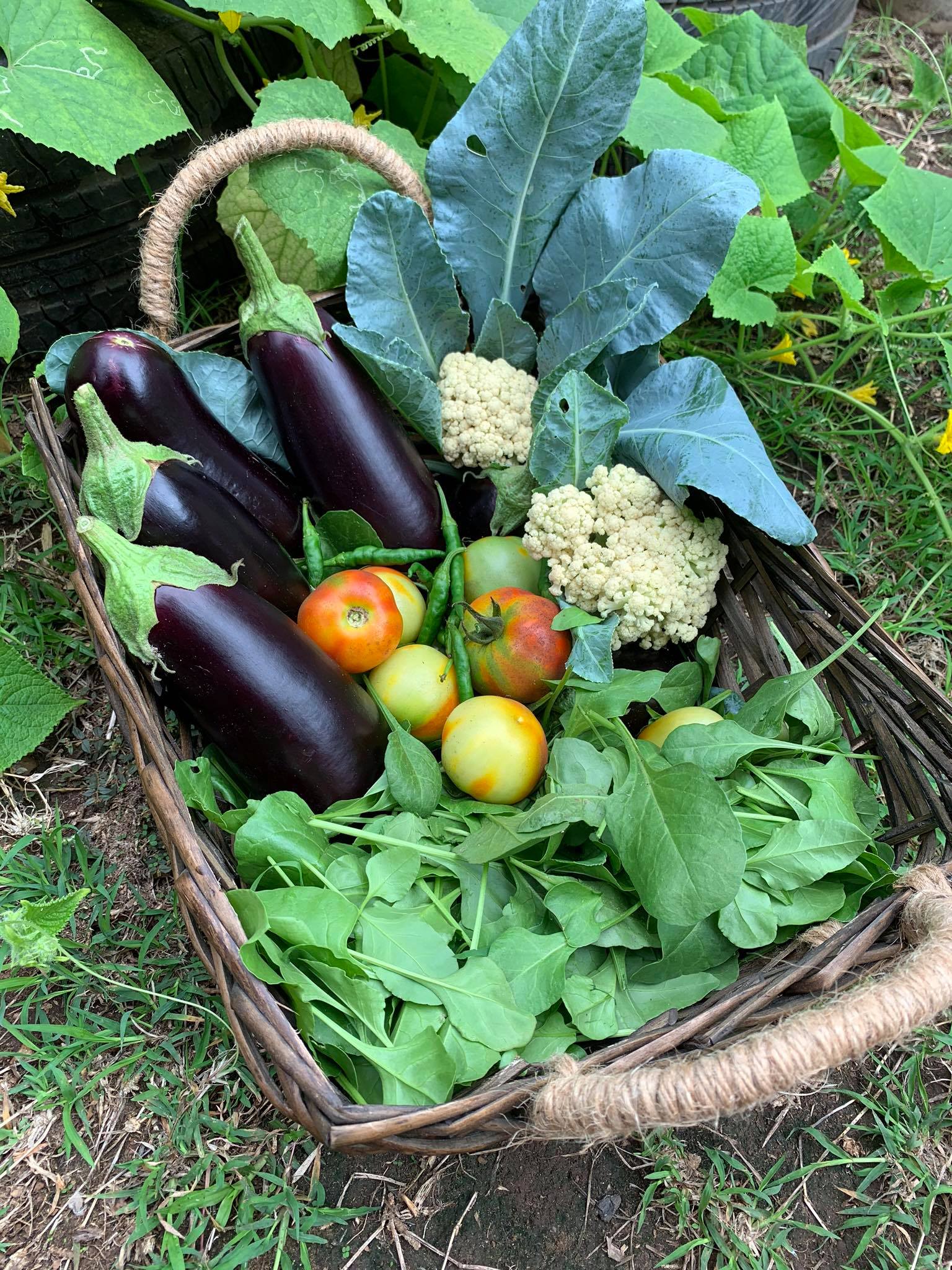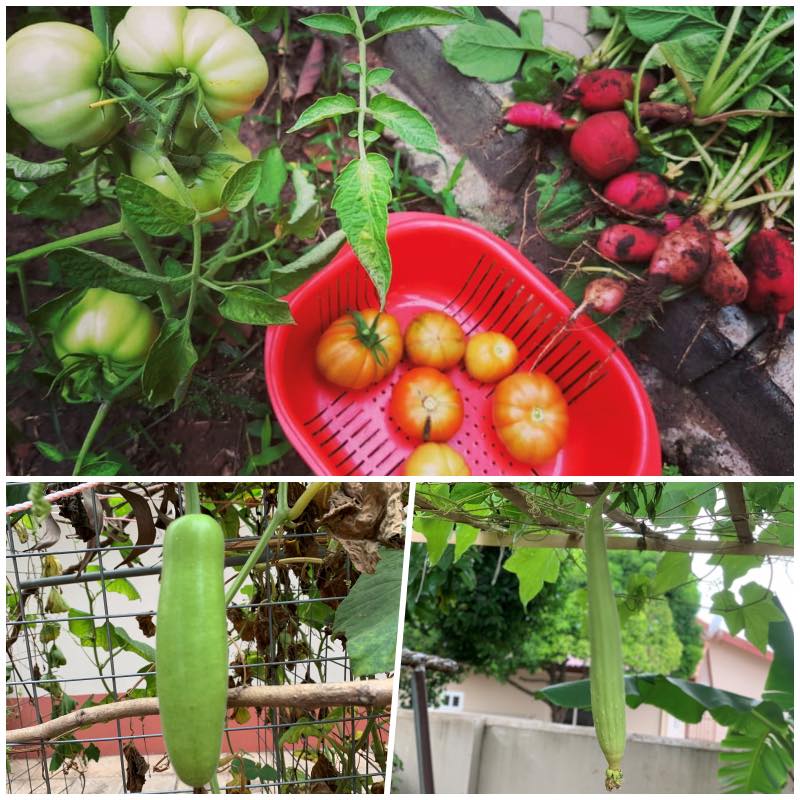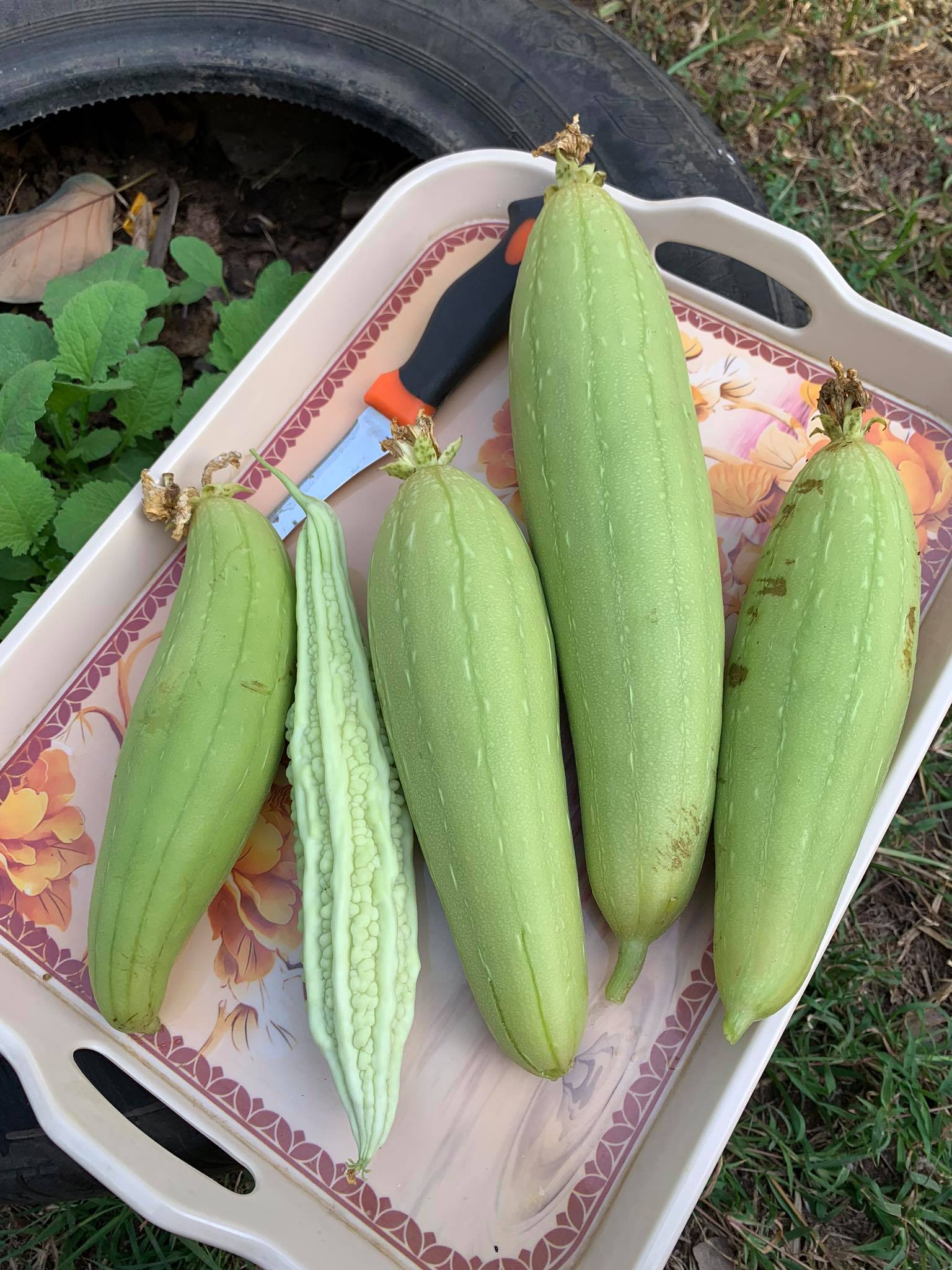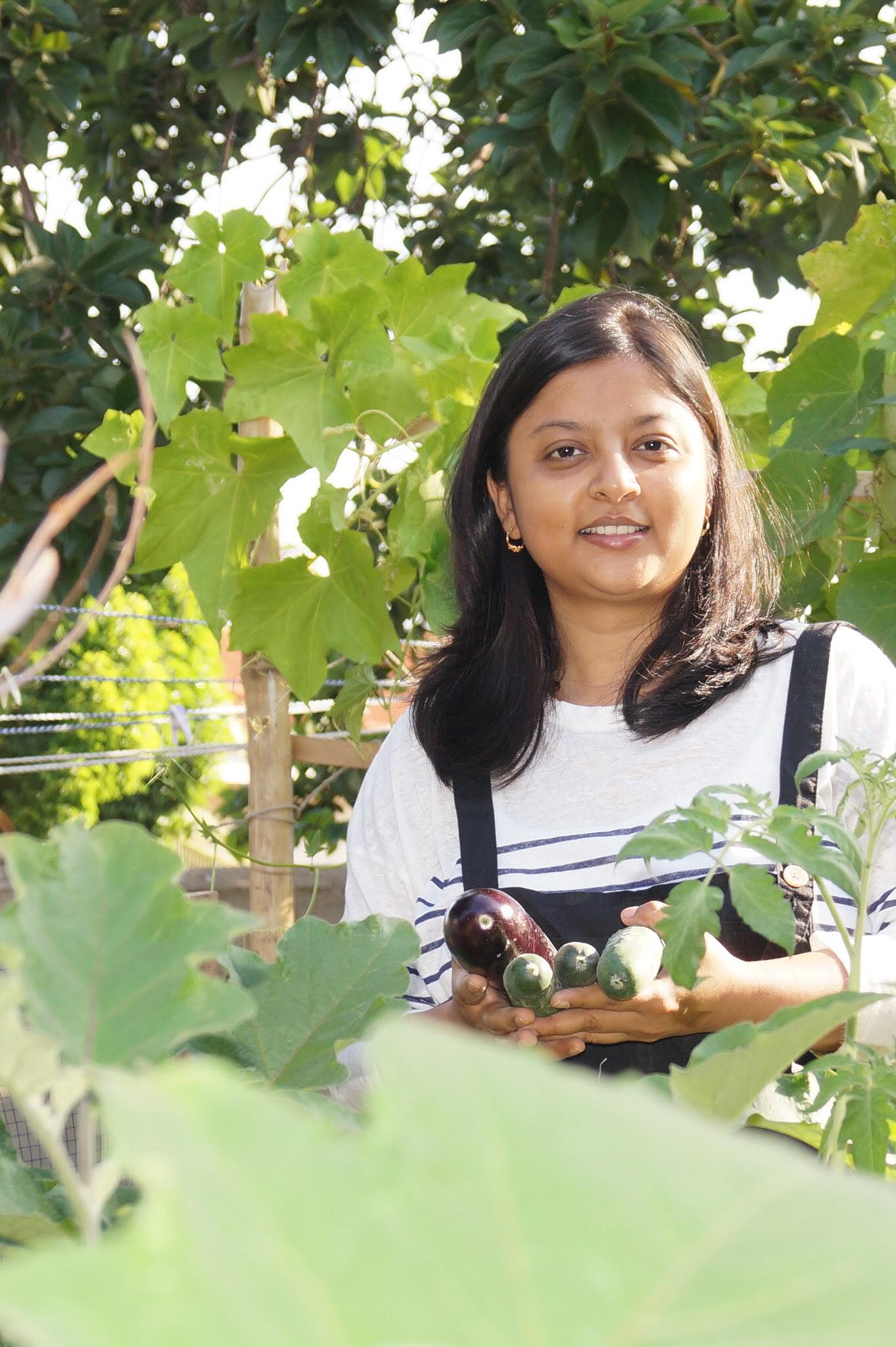
Meet Pragya Kashyap, from Accra, Ghana
“I worked as a software Engineer in R&D dept of an MNC in India before relocating to Ghana with my family in 2015. I was always fascinated by farming. I used to wait for summer vacation growing up when exploring farms, observing the harvest and processing of green grams and wheat crop, harvesting seasonal green veggies like okra and snakebeans were my favourite activities. I could never understand why my grandfather looked so satisfied and happy when we used to eat fresh veggies from our farm until I started growing vegetables myself.
When I relocated to Ghana, Luckily we had enough space in our campus to explore gardening hobby. I started with easy to grow veggies and the very first harvest revealed the secret of satisfied look of my grandfather. I was watching my son with the same emotion when he was eating homegrown veggies. This is the very reason I grow food so that I can forward this tradition of growing food to next generation, too.
My eight year old son was giving presentation in his school on the topic “ Reduce Reuse Recycle”. He explained the ways we can recycle our kitchen waste and use it in our garden. A parent was listening to him and asked whether he can grow healthy plants with kitchen waste. My son explained confidently : “No, kitchen waste is fine , but you need to keep checking snails and slugs. Compost can’t help if your garden has lots of snails and slugs. They will eat your plants and destroy the garden. So when you wake up in the morning, pick all the snails and do the same in evening”. No one expected this answer. I was amazed.
He understood the composting concept very well because the teacher explained in the class but the knowledge of basic gardening problems comes with experience only. It was a rewarding experience. The only thing confuses him that why do I buy cow dung manure! After all it’s poop! Now I explained vermicompost too, worm poop! Our gardening conversation becomes laughter therapy.
I recommend everyone to grow at least two edible things in your balcony or terrace if you don’t have enough space. It teaches us to keep patience as well as it gives a glimpse of farmer’s efforts to make food available for us.”
